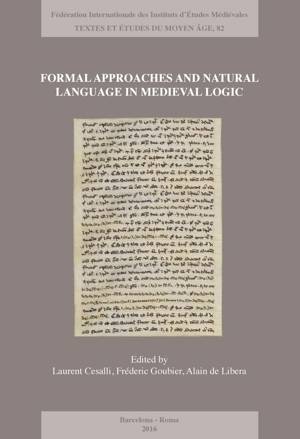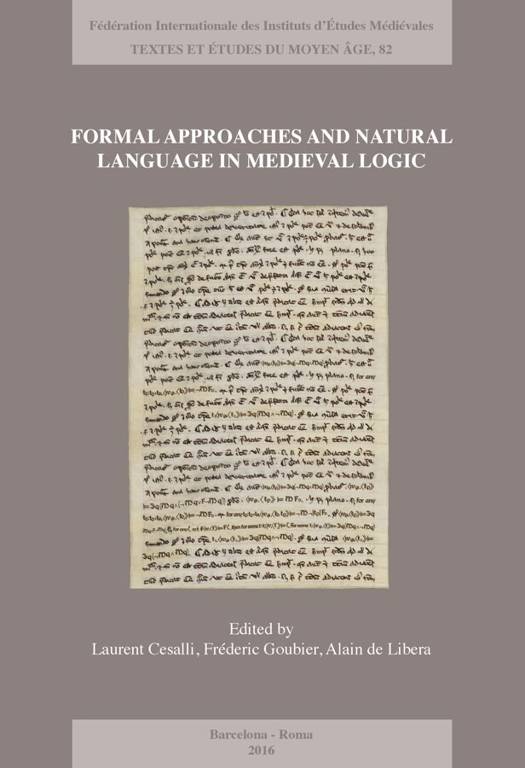
Je cadeautjes zeker op tijd in huis hebben voor de feestdagen? Kom langs in onze winkels en vind het perfecte geschenk!
- Afhalen na 1 uur in een winkel met voorraad
- Gratis thuislevering in België vanaf € 30
- Ruim aanbod met 7 miljoen producten
Je cadeautjes zeker op tijd in huis hebben voor de feestdagen? Kom langs in onze winkels en vind het perfecte geschenk!
- Afhalen na 1 uur in een winkel met voorraad
- Gratis thuislevering in België vanaf € 30
- Ruim aanbod met 7 miljoen producten
Zoeken
Formal Approaches and Natural Language in Medieval Logic
Proceedings of the XIXth European Symposium of Medieval Logic and Semantics, Geneva, 12-16 June 2012
Laurent Cesalli
Paperback | Engels
€ 73,14
+ 146 punten
Omschrijving
Is medieval logic formal? And if yes, in what sense? There are striking affinities between medieval and contemporary theories of language. Authors from the two periods share formal ambitions and maintain complex, and at time uneasy, relations with natural language. However, modern scholars became careful not to overlook the specificities of theories developed more than five hundred years apart, in particular with respect to their 'formal' character. In 1972, Alfonso Maieru noted that the efforts of medieval logicians to identify logical structures in language formal enough to become objects of scientific consideration. He also stressed that the language investigated is a historical one, Latin, so that one can legitimately wonder to which extent ... one is allowed to speak of 'formal logic' in the middle ages. In other words, medieval logic is characterized by a tension between 'formalist ambitions' and constraints proper to natural language. Today, our knowledge of the field has considerably expanded, calling for a new assessment of the question.
Specificaties
Betrokkenen
- Auteur(s):
- Uitgeverij:
Inhoud
- Aantal bladzijden:
- 538
- Taal:
- Engels
Eigenschappen
- Productcode (EAN):
- 9782503567358
- Verschijningsdatum:
- 21/03/2017
- Uitvoering:
- Paperback
- Formaat:
- Trade paperback (VS)
- Afmetingen:
- 163 mm x 239 mm
- Gewicht:
- 884 g

Alleen bij Standaard Boekhandel
+ 146 punten op je klantenkaart van Standaard Boekhandel
Beoordelingen
We publiceren alleen reviews die voldoen aan de voorwaarden voor reviews. Bekijk onze voorwaarden voor reviews.









